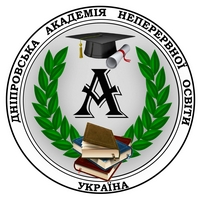MATHEMATICAL COMPETENCE MODEL OF A PHYSICS TEACHER
Abstract
The purpose of this article is to analyze the concept of the physics and astronomy teacher’s mathematical competence structure. Theoretical and experimental methods were used in the research including methods of systemic analysis, pedagogical modeling, testing of statistical hypotheses based on selective studies and descriptive statistics. The research results reveal that the mathematical activity of physics teachers, defined by functional components of subjectmethodological competence, encompasses 20 directions. The importance indices were determined for each of these directions, reflecting the frequency of their application in teachers’ real work. A structural model of the physics teacher’s mathematical competence was constructed. This model includes blocks of subject-methodological and analytical activities, interconnected by feedback loops. Informational connections link these blocks with blocks of analytical, operational, and epistemological functions, as well as with blocks related to the selection of mathematical activities types and directions of mathematical activity. An experimental study of the methodology for measuring the indices of mathematical competence levels was conducted identifying problematic mathematical topics for physics teachers. These topics include expression transformations, elements of differential calculus, geometric problems, and vector-coordinate methods. The practical significance of research lies in the fact that the obtained results facilitate of the postgraduate training system enhancement for teachers in advanced courses, as well as the design and implementation of a methodological system for the development of mathematical competence among physics teachers within the framework of continuous pedagogical education. The analysis conducted in the research also permits the identification of directions for improvement in the training of future physics teachers in classical and pedagogical universities. The main research conclusions, it is noteworthy that an intermediate level of mathematical competence is essential for realizing the functions of subject-methodological competence among physics teachers. Furthermore, it was established that at least 30% of physics teachers require additional mathematical education for their further effective work. Future research in this domain will be focused on the implementation and analysis of the effectiveness of the methodological system for the development of mathematical competence among physics teachers within the framework of continuous pedagogical education.
References
2. Головань М. С. Математична компетентність: сутність та структура. Науковий вісник Східноєвропейського національного університету, 2014. № (1). С. 35–39.
3. Жигірь В. І. Оцінювання професійної компетентності фахівця як фактор його формування. Наукові записки Бердянського державного педагогічного університету. Серія: Педагогічні науки, 2014. № 2. С. 40–47.
4. Кірман В., Чаус Г. Структурно-параметрична модель математичної компетентності вчителя біології та підходи до її ідентифікації. Актуальні питання природничо-математичної освіти, 2020. Вип.1 (15). С. 100‒112.
5. Кірман В. К. Векторна модель математичної компетентності учителя математики та підходи до її ідентифікації. Актуальні питання природничо-математичної освіти, 2017. № 2 (10). С. 94‒101.
6. Кірман В. К., Соколова Е. Т. (2020). Системний аналіз математичної компетентності вчителя географії. Наукові записки. Серія: педагогіка, 2020. № 1. С. 41–51.
7. Кірман В. К. Формування готовності до пропедевтичної діяльності вчителів математики та природничих дисциплін.
Проблеми розвитку професійних компетентностей вчителів природничо-математичного напрямку: збірник тез доповідей Всеукраїнської наук.-практ. конф., (Дніпро, 23 грудн. 2020 р.). Дніпро: КЗВО «ДАНО» ДОР», 2020. С. 51–54.
8. Кочерга Є., Чаус Г., Кірман В., Романець О. Особистісний компонент професійної компетентності вчителя. Освітні інновації: філософія, психологія, педагогіка: збірник наукових статей: у 2 т., 2020. Т. 2. С. 289‒292.
9. Кочерга Є., Чаус Г., Романець О. (2020). Розвиток професійної компетентності вчителів природничих дисциплін на курсах підвищення кваліфікації. Вересень. Науково-методичний, інформаційно-освітній журнал, 2020. Т. 4. № 2‒3 (85‒86). С. 54‒60.
10. Кулик Л. О., Ляшенко Ю. О. Формування інформаційно-комунікаційної компетентності майбутніх вчителів фізики на лабораторних заняттях зі «Шкільного курсу фізики та методики його викладання». Наукові записки. Серія: Проблеми методики фізико-математичної і технологічної освіти, 2017. Вип. 11 (І). С. 81–86.
11. Ніколаєв О. Формування предметної компетентності майбутнього вчителя фізики. Наукові записки. Серія: Проблеми методики фізико-математичної і технологічної освіти, 2013. Вип. 4 (ІІ). С. 170–174.
12. Чкана Я. О. Визначення рівнів сформованості математичної компетентності майбутніх вчителів математики. Науковий часопис Національного педагогічного університету імені М. П. Драгоманова. Серія 3: Фізика і математика у вищій і середній школі: зб. наук. праць, 2017. № 19. С. 78–86.
13. Csapó B., et al. Mathematical Competence and Teaching Physics: A Study of High School Physics Teachers, 2011.
14. Bing T. J., Redish E. F. Analyzing problem solving using math in physics: Epistemological framing via warrants. Physical Review Special Topics-Physics Education Research, 2009. № 5 (2).
15. Hestenes D. Modeling methodology for Physics teachers. Proceedings of the International Conference on Undergraduate Physics Education (College Park, August), 1996. URL: https://www.researchgate.net/publication/243779065_Modeling_methodology_for_Physics_teachers (accessed: 21.08.2023).
16. De Lange J. Using and applying mathematics in education. In K. C. A. J. Bishop, C. Keitel, J. Kilpatrick, & C. Laborde (Eds.), International Handbook of Mathematics Education (Vol. 1). Dordrecht: Kluwer, 1996.
17. Nilsen T., Angell C., & Grønmo L. S. Mathematical competencies and the role of mathematics in physics education: A trend analysis of TIMSS Advanced 1995 and 2008. Acta Didactica Norge, 2013. № 7 (1). P. 6. URL: https://doi.org/10.5617/ADNO.1113 (accessed: 21.08.2023).
18. Niss M. Mathematical competencies and the learning of mathematics: the Danish KOM project. Paper presented at the 3rd Mediterranean Conference on Mathematical Education, A. Gagatsis & S. Papastavridis (Eds.), New York, 2003.
19. Paramata Y. Science teacher competence to design active learning. Physics Education, 2015. P. 277–281.
20. Rebello N. S., Cui L., Bennett A. G., Zollman D. A., & Ozimek D. J. Transfer of learning in problem solving in the context of mathematics and physics. In D. H. Jonassen (Ed.), Learning to Solve Complex Scientific Problems. Mahwah, NJ: Lawrence Erlbaum, 2007.
21. Redish E. F. Problem solving and the use of math in physics courses. 2006.
22. Uhden O., Karam R., Pietrocola M., & Pospiech G. Modelling Mathematical Reasoning in Physics Education. Science & Education, 2011. P. 1–22.

 ISSN
ISSN  ISSN
ISSN 

